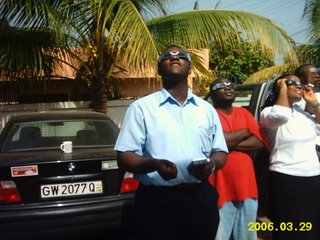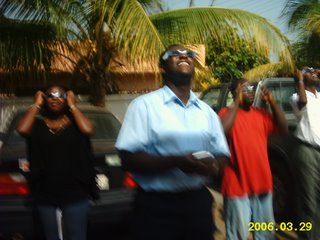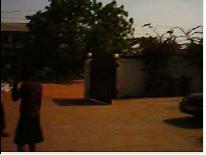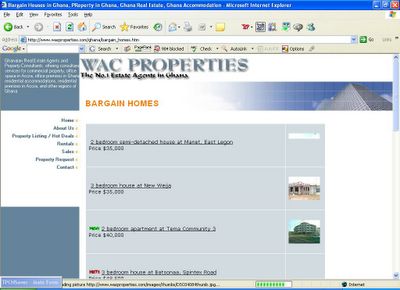
I started last Friday by attending a seminar at the British Council entitled "Ethnicity and Politics in West Africa", which was organised by the Institute of Statistical, Social & Economic Research at the University of Ghana. They had invited the following people to come speak about the topic:
1) PROF. FRANCES STEWART, Director, CRISE, University of Oxford
2) PROF. FRANCIS AKINDÈS, Universitè de Bouakè, Côte d’Ivoire:
3) DR. ABDUL RAUFU MUSTAPHA, Lecturer, University of Oxford
4) MR. RICHARD ASANTE, Institute of African Studies, University of Ghana

This was the entrance of the British Council, a bit more heavily-guarded than usual. The guard looks like he is going to kick ass;-)
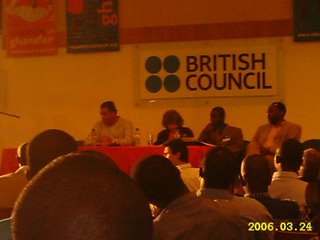
From left to right: the CHAIRMAN: Hon. Jake Obetsebi-Lamptey
Minister of Tourism & Modernisation of the Capital City; PROF. FRANCES STEWART, Director, Centre for Research on Inequality, Human Security & Ethnicity (CRISE), University of Oxford ; MR. RICHARD ASANTE, Institute of African Studies, University of Ghana; DR. ABDUL RAUFU MUSTAPHA, Lecturer, University of Oxford.
To be fair, I think Obetsebi-Lamptey, as a communications man, chaired the programme rather well, and the debate and discussions were interesting, albeit a bit too general. For example, Ghana, it was claimed, has "political inequalities" that are worsening, but without any concrete elaboration on what they are.
I felt compelled, furthermore, to ask why Bolivia was a success story, and what lessons were there for West Africa. Some of the explanations given were this:
...unlike Guatemala and Peru, where there had be no recognition of local people, as well as a military that was tremendously implicated in social injustice.
My main question ran like this:
Rwanda is an example of a country where the PERCEPTION of ethnicity has gone horribly wrong. I mean even if we look back to the 1960s, at the instance of the first genocide when the Belgians and the Germans were the colonial masters...it is clear that ethnicity was a key issue. We know what happened in 1994, but if we can go back to the present. Only last week, it was splashed in the Daily Graphic that an ID Bill had been passed. I would like to know whether that will have adverse effects for Ghana or not..."
To which Dr.Mustapha answered that an ID card is "neither good nor bad, it is what you use it for", which I think excellentlye encapsulated the sometimes-unnecessary fear that surrounds society in its thinking that it is being restricted by the State. He also added that Nigeria had been trying it for the past two years now. I think it is a debate that merits serious looking into.
Now, I guess you do not need me to tell you what has been dominating the news left, right, and centre this week. It's ofcourse been the eclipse. I caught three videos, but was only able to post two. The first is a more comprehensive one, which you can download here

To the right are some of my colleagues on the compund at work, with their camera-phones, digital cameras and whatnot trying to prepare to capture this phenomenon of epic proportions.
Those who looked at the sun ensure that they were wearing their protective spectacles, even if they wore them reluctantly, cursing the capitalist enterprise surrounding the procurement of it...;-)

That same evening, I was at the British Council to attend (29 March, 2006 ofcourse!) a lecture from the ISSER-MERCHANT BANK series of annual lectures. This year's is on Globalisation, and this particular one was on Corporate Governance.
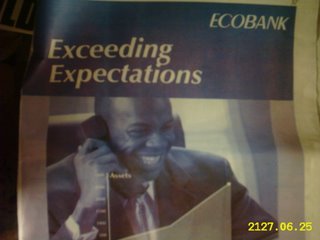
Meanwhile, ECOBANK has been in the news, because, according to the Daily Graphic, ECOBANK is keen to...
...raise funds through an Initial Public Offer (IPO) on the Ghana Stock Exchange (GSE) [as well as...]"currently working closely with its Transaction Advisors and the relevant regulatory bodies on the proposed floatation and listing on the GSE" "intend[ing] to utilise the funds to support its expansion plans, which includes the opening of additional branches and agencies throughout the country and a further upgrading of its technology platform"
If my experience of their customer service is anything to go by, ECOBANK's aspiration to become, in the words of former ECOBANK heavyweight Albert Essien, a reliable pan-african institution can only evince the words...

Enough said.

